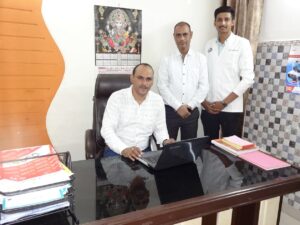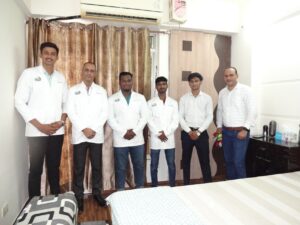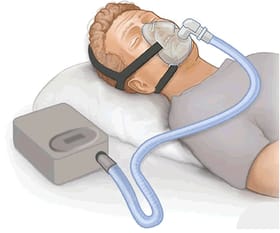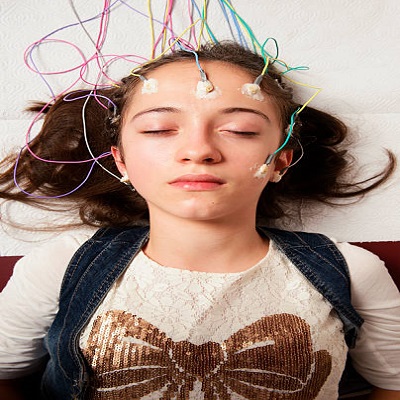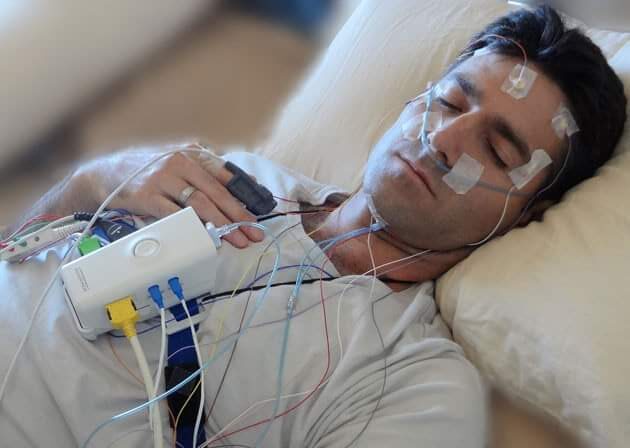Well Sleep Solution
Centre for Respiratory and Sleep Disorders
Now get
5 years of Extended Warranty
@Rs. 17,000 + Tax
Only on ResMed Airsense, Airstart, Lumis and Aircurve Devices.

The Warranty period includes:
- 1 free service per year for 5 years.
- Free repair of parts of device.
- Free replacement in case of major issue.
Well Sleep Solution
Well Sleep Solution is the best sleep clinic in Delhi NCR for a number of reasons. Firstly, the clinic has a team of highly qualified and experienced sleep specialists who use the latest technology and techniques to diagnose, and treat sleep disorders. They offer a wide range of sleep studies and tests including polysomnography, multiple sleep latency test, and actigraphy, which are conducted in a comfortable and relaxed environment to ensure the best possible results. Well Sleep Solution is equipped with state–of-the-art sleep labs, that provide a peaceful and calming environment for patients to sleep in. The labs are equipped with the latest equipment and technology to ensure accurate and reliable results.
SLEEP LAB
Hygienic - Well Cleaned Sleep Test Laboratory
EXPERIENCE
16+ years experience in Sleep & Respiratory Treatment
COUNSELLING
PSG Counselling with Sleep Expert Consultation
QUALITY CONTROL
US Standard Labs & world-class Devices are used
DEVICES
All kinds of Respiratory Devices Available
TECHNICIANS
Certified and well-educated Technicians
CONSULTATION
Online Consultation with Pulmonologist
RESPIRATORY EQUIPMENT
Sale/Rent/Repair - BIPAP, CPAP, Oxygen Concentrator, etc
Enquire Now
Fill the Form below to Enquire
PAN India Collaboration with
We offer Solution for :
Loud Snorring
Breathing pauses during sleep
Sleep Apnea
Obstructive Sleep Apnea
Hypersomnia
Insomnia
Narcolepsy
Cataplexi
Chronic Obstructive Pulmonary Disease
Pulmonary Hypertension
Interstitial Lung Disease
Asthma
Our Ratings on Google
We never settle for the second best. Therefore, our patients shower their love in the form of highest possible ratings on different platform. Our results do marketing for us.
Check out what people say about us on Google Reviews.
Rated 4.9 out of 5 on Google Reviews.
Gantavya dhamija
“Todays sleep study conduct at home. Thanks to well sleep…”
Gantavya dhamija
“Today . My sleep study has been done in sleep center. It was…”
Gantavya dhamija
“Sleep study test conducted by Sleep solution at my home, Technician…”
Gantavya dhamija
“Good condition of room, clean and peaceful…”
Gantavya dhamija
“Excellent Service!!!!
Very Professional and homely…”
Gantavya dhamija
“Clean and nice place fpr sleep study. Technician explain…”
Gantavya dhamija
“Facilities are excellent. Staff was cooperative…”
Gantavya dhamija
“Very comfortable environment and doesn’t feel like a lab…“
Tips for Improving Your Sleep Quality when You Have Sleep Apnea?
Sleep apnea can be described as a condition where breathing is disrupted during sleep and it is a common and potentially dangerous condition. It impacts sleep quality and rigidity causing sleepiness during the day including irritability, and other health complications. So, it is rather challenging to enhance your sleep quality if you are diagnosed with sleep apnea; however, it needs individual comprehensive treatment. Following are some recommendations that may aid in controlling this condition and having much improved quality of sleep.
1. Adhere to Your Treatment Plan
There are measures that one can take to ensure they get better sleep and this include following the doctor’s advise. This can include the use of the Continuous Positive Airway Pressure machines also known as the CPAP therapy which delivers continuous flow of air to keep the airways of the patient open as they cover their faces with a mask while sleeping. Stay dedicated to your therapy; use your CPAP machine each night to get the most from it.
2. Maintain a Healthy Weight
Losing weight is especially essential since sleep apnea has been linked with overweight persons. Obesity can make it more difficult for air to flow through your airways, especially around the neck, this is likely to worsen the apnea signs. One may consider a healthier manner of eating and increased physical activity as they can assist in losing weight and lessen the effects of sleep apnea. It is to be noted here that even a couple of pounds count: they can make a significant difference.
3. Sleep Position Matters
In the case of sleep apnea, it is considerable to note that the position that one adopts when sleeping can have an impact on one’s condition. Laying on your back lay on your back can result in the tongue and other soft tissues folding to the back of the throat covering the airway. However, self-settling is more advisable at this as it’s better to sleep while lying on your side than on your stomach or back. There are special pillows and positional therapy devices which have the ability of making the person remain on this side all through the night.
4. Avoid Alcohol and Sedatives
Alcohol and sedatives as we all know have effects of relaxing muscles and this is the reason why individuals who consume alcohol and sedatives are likely to have their airways blocked. Trying to refrain from taking these substances, especially before going to bed, is advisable. If you need to take something for sleep it’s a good idea to discuss it with your doctor so that he or she can advise you on what medication will not worsen your condition.
5. Create a Sleep-Friendly Environment
As we mentioned above, you should pay attention to how your sleeping environment affects the quality of your sleep. Make sure the bedroom is dry, dark, and noise free to help you sleep. One can use blackout curtains that will help in the reducing of the amount of light that is in the room and also a white noise machine that will help in muffling the disruptive noise. Some simple actions like using the correct mattress and unpredictable but undeniably comfortable pillows are also helpful.
6. Establish a Consistent Sleep Routine
Maintaining a regular sleep and waking pattern, even during the weekends, aids in establishing a regular clock in the body. Sticking to a well managed sleep timetable also helps in enhancing the amount of sleep taken. Create a special pre-sleep ritual around going to bed and have a preferable activity before sleeping like reading, having a bath, doing breathing exercises or any type of meditation.
7. Limit Caffeine and Heavy Meals Before Bed
Caffeine is most definitely a stimulant and should not be taken close to bedtime since it prevents sleep. It is also desirable to miss caffeine containing foods and beverages in the afternoon and evening. Equally, food taken in large proportions or foods that are rich in spice also have a way of making the tummy upset and hence hinder sleep. It is recommended that for the healthy digestion, the last meal should be taken three to four hours before retiring to bed.
8. Stay Active During the Day
Exercise, the kind that puts modest strains on your body, also helps you sleep better and longer. However, it is better to do workout at least for a few hours before your bedtime as workouts stimulate the system and can make it more difficult to go to sleep.
9. Manage Stress and Anxiety
Stress and anxiety decrease the quality of sleep, making it more difficult for people to easily fall asleep and to wake up during the night. ST – Integrate relaxation techniques to your daily lifestyle like yoga, mindfulness meditation or walking bare feet in the grass. These help in gathering one’s thoughts and putting the body in a position to rest for sleep.
10. Regular Medical Check-Ups
It is important to consult your doctor regularly if you’re to live a normal life and effectively control your sleep apnea. They can check in on your health status, modify the management regimen if necessary, and reassure anxious patients. Therefore, paying adequate attention to our health as a student can greatly help or hurt our sleeping quality.
To sum up, sleep apnea can be managed through medical way that embraces habits alteration, and using proper equipment during sleep. The use of these tips will go a long way in ensuring you get a better sleep and improving the quality of your life. Just do not forget that large changes could result in much greater changes, both the positive ones you’ll feel during the day, and the negative ones you will experience at night.
What is a child sleep test?
A child sleep test, also referred to as paediatric sleep study or polysomnography, which is a kind of diagnostic test used to evaluate sleep disorders in children. Child sleep study monitors various physiological parameters during sleep to identify issues such as obstructive sleep apnea, central sleep apnea, restless legs syndrome, periodic limb movement disorder and other sleep-related problems or disorders.
How to pick the best Sleep Study Lab in Delhi NCR?
The following mentioned factors, which have an impact on the comfort and quality of the sleep study test, must be taken into consideration while choosing the ideal sleep study lab.
- Entire Assessment – A comprehensive evaluation that includes some initial assessment, diagnostic testing, and follow-up care should be only offered by a reputable sleep study lab. This is helpful in providing a thorough diagnosis as well as help in comprehending the various phases of a patient’s sleep.
- Group of professionals – A comprehensive strategy brings some benefits and is frequently particularly useful for various kinds of sleep problems. To receive more specialised care, pick a sleep study lab with teams including pulmonologists, neurologists and sleep technicians.
- Tailored Attention – To create a customised plan for sleep study test, the best sleep study lab in Delhi ncr, additionally evaluate every patient’s medical history, lifestyle factors and the specific plan for sleep study test which is suitable for the patient.
- Check reviews – Always check reviews on different platform for the center. Review may describe the positive and negative points for the sleep study lab. Patients testimonials always needed while choosing sleep lab for Polysomnography.
How Holter monitoring is different from normal ECG test?
An ECG takes a quick snapshot of the heart’s electrical activity, whereas a Holter holter test continuously records the heart’s electrical activity over a period of 24 to 48 hours. The Holter monitor is intended to identify sporadic problems, such as abnormal cardiac rhythms, that could go undetected on a brief ECG. Both procedures are non-invasive, but the Holter monitor allows long-term monitoring, which makes it better suited for diagnosing irregularities like arrhythmias. The ECG, on the other hand, provides detailed information at a given moment in time.






